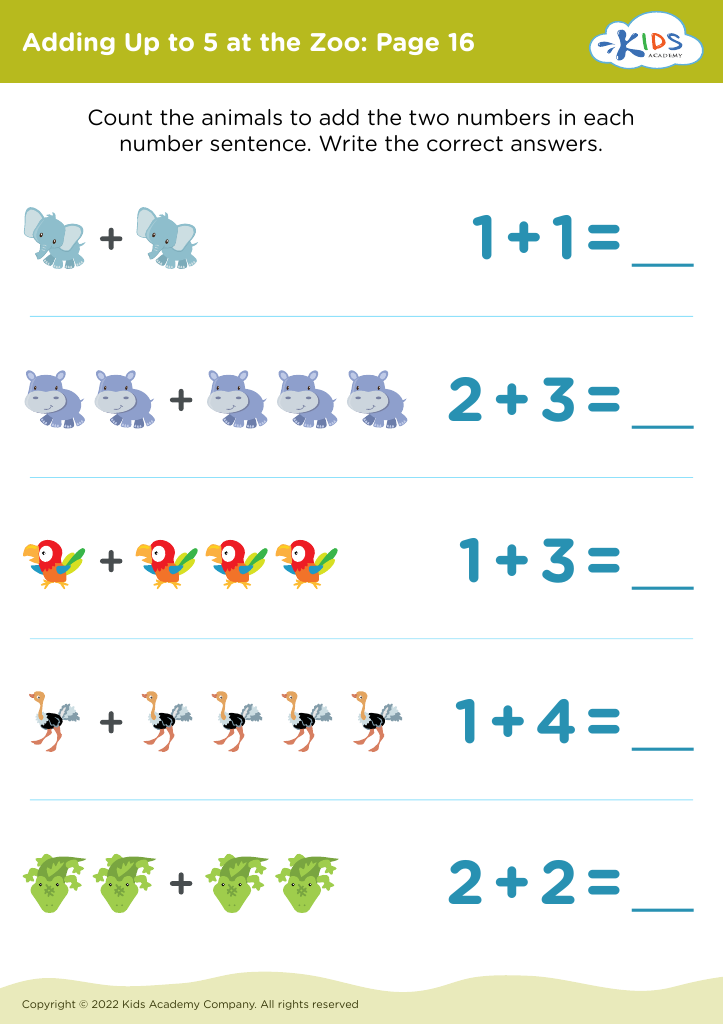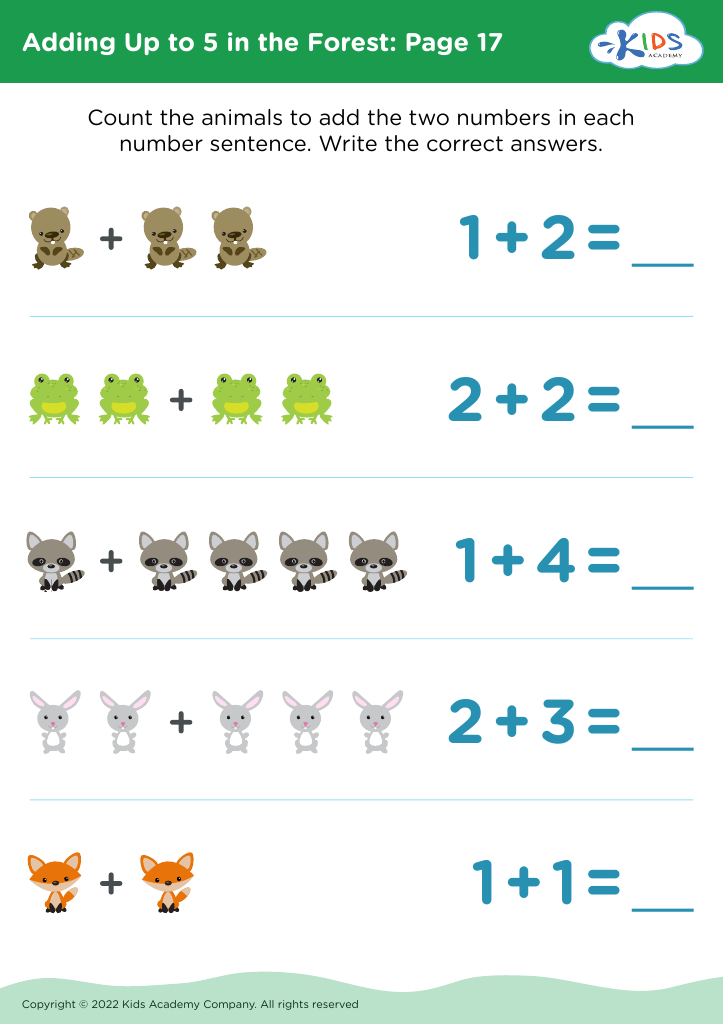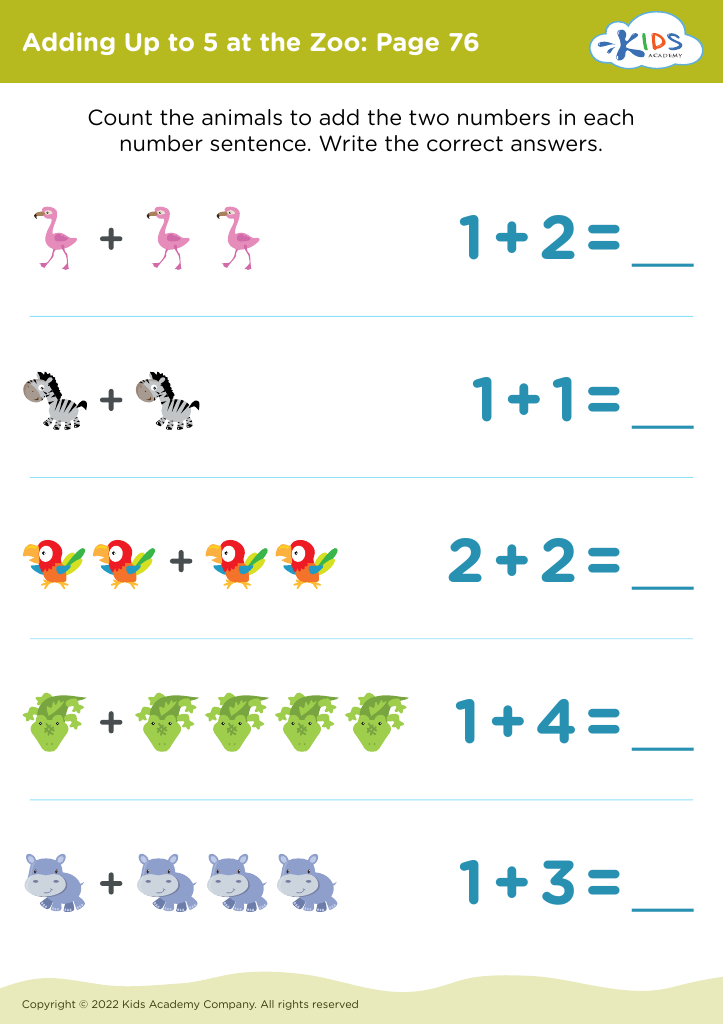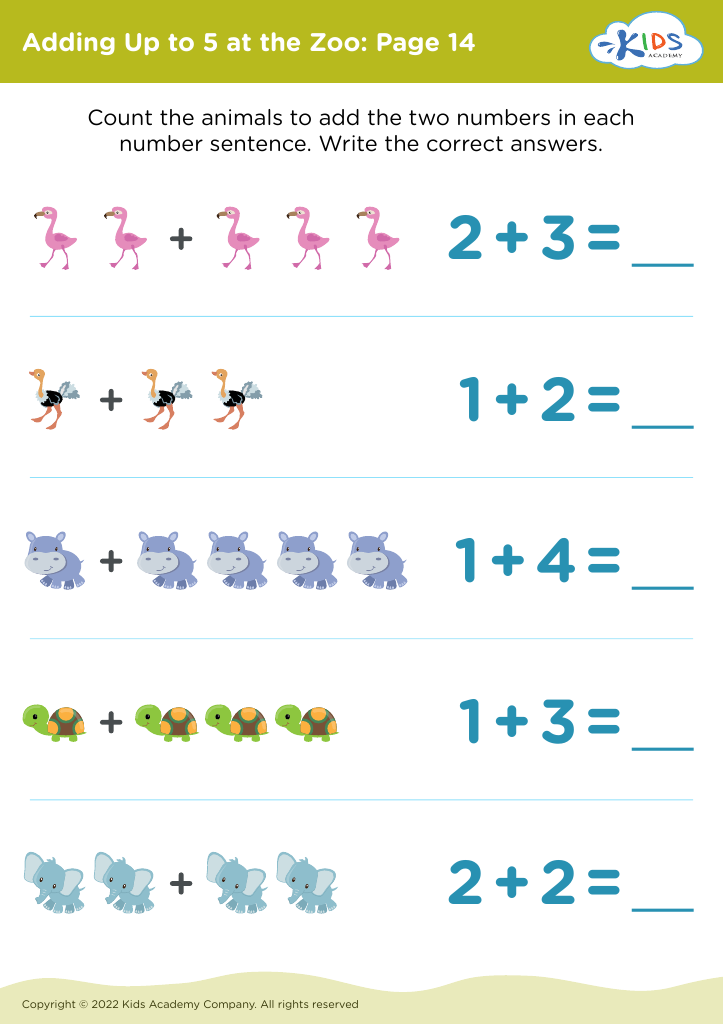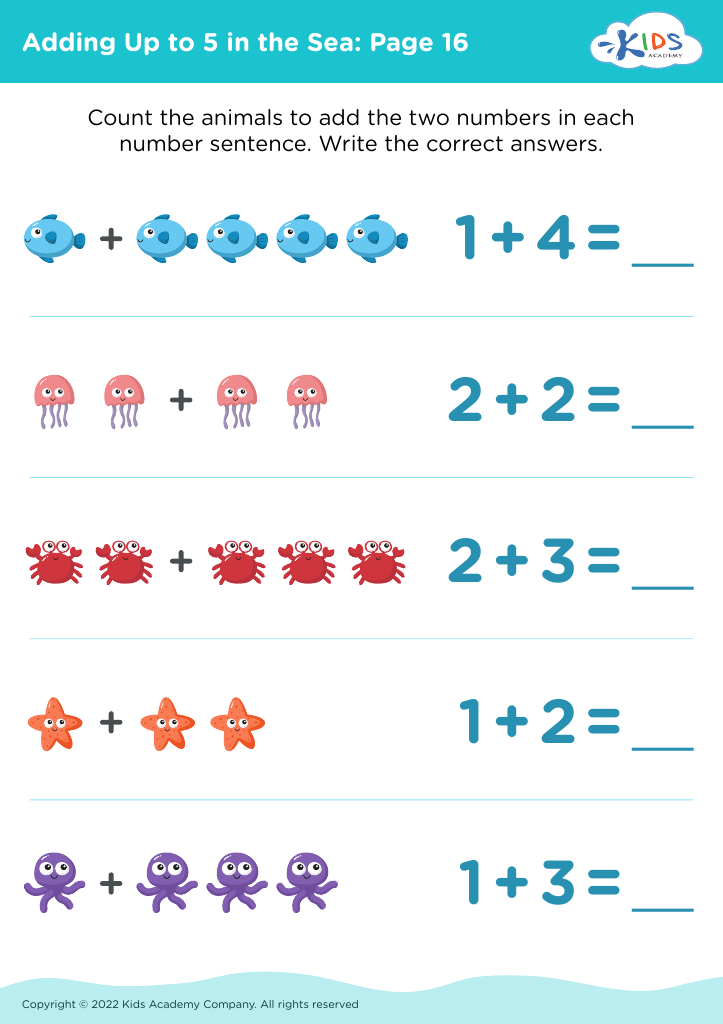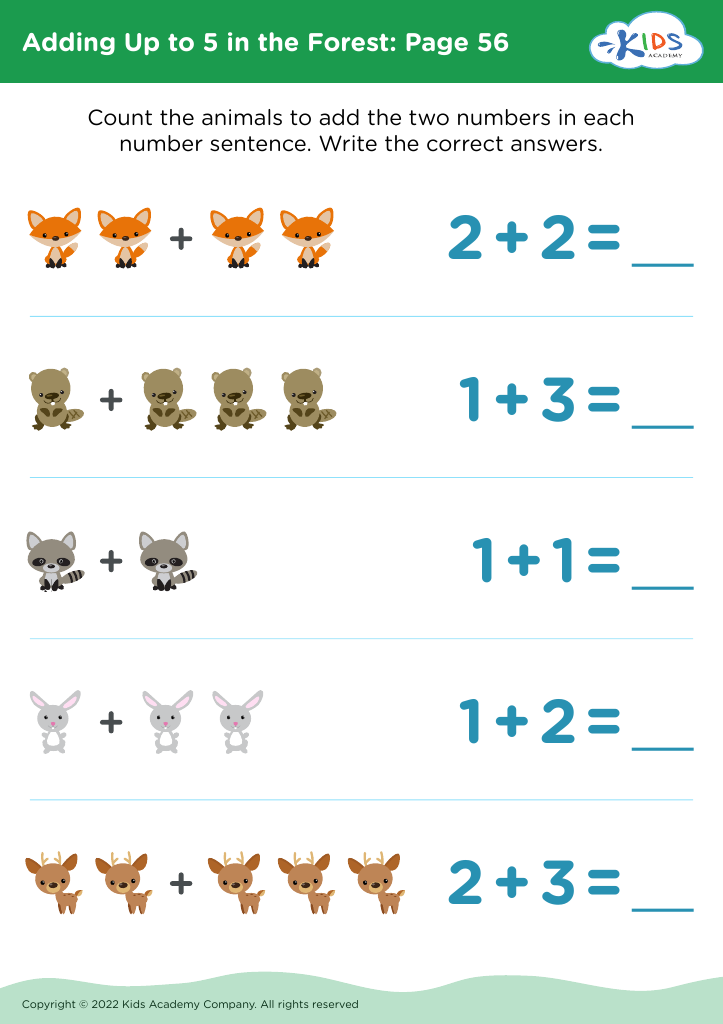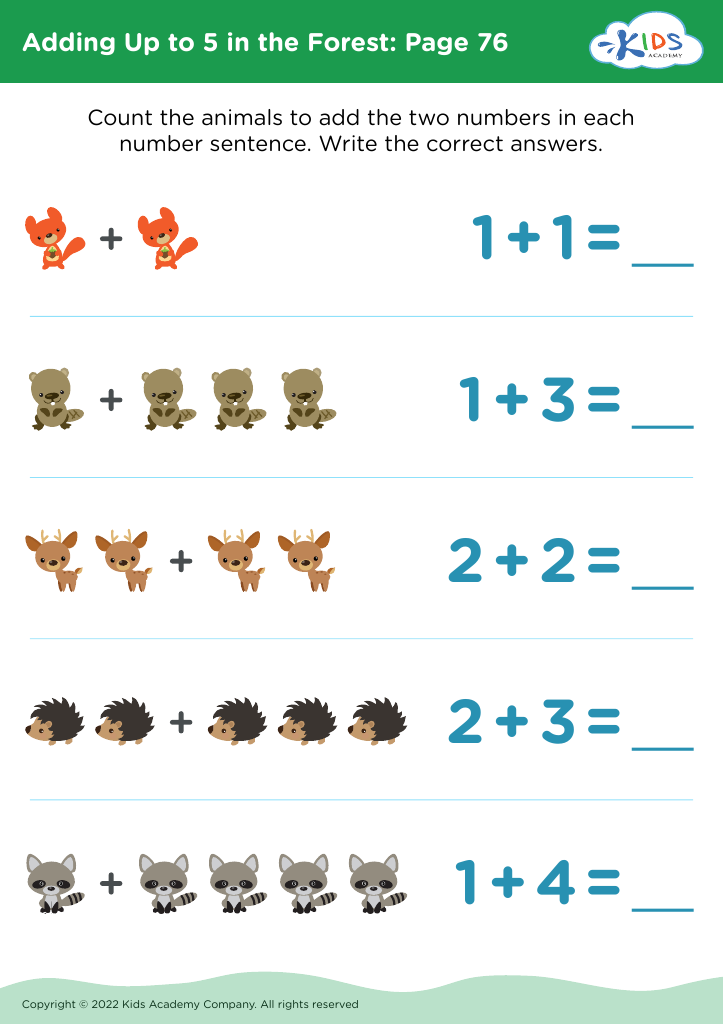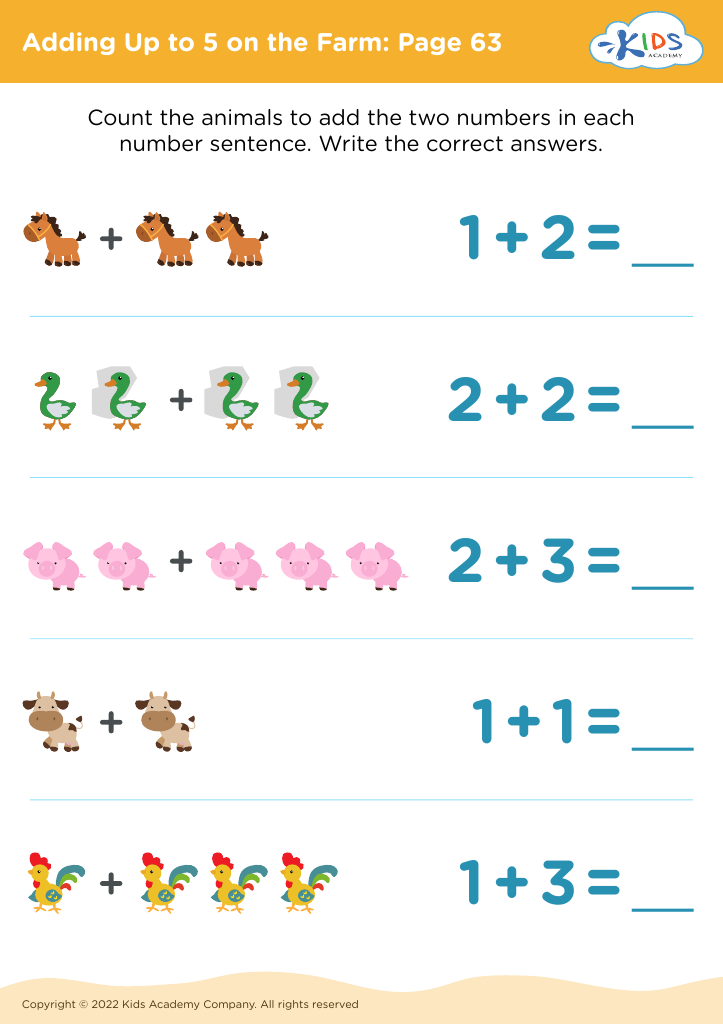Problem Solving Addition Worksheets for Ages 3-4
12 filtered results
-
From - To
Discover engaging Problem Solving Addition Worksheets designed specifically for ages 3-4! Our collection encourages young learners to develop fundamental math skills through fun and interactive activities. These worksheets focus on problem-solving techniques, helping children to understand addition concepts in a playful manner. Featuring colorful illustrations and relatable scenarios, your little ones will practice counting and combining numbers while enhancing critical thinking abilities. Ideal for preschool settings or home learning, these worksheets promote not just math skills, but also creativity and cognitive development. Start your child's math journey today with our thoughtfully crafted addition worksheets that make learning enjoyable!
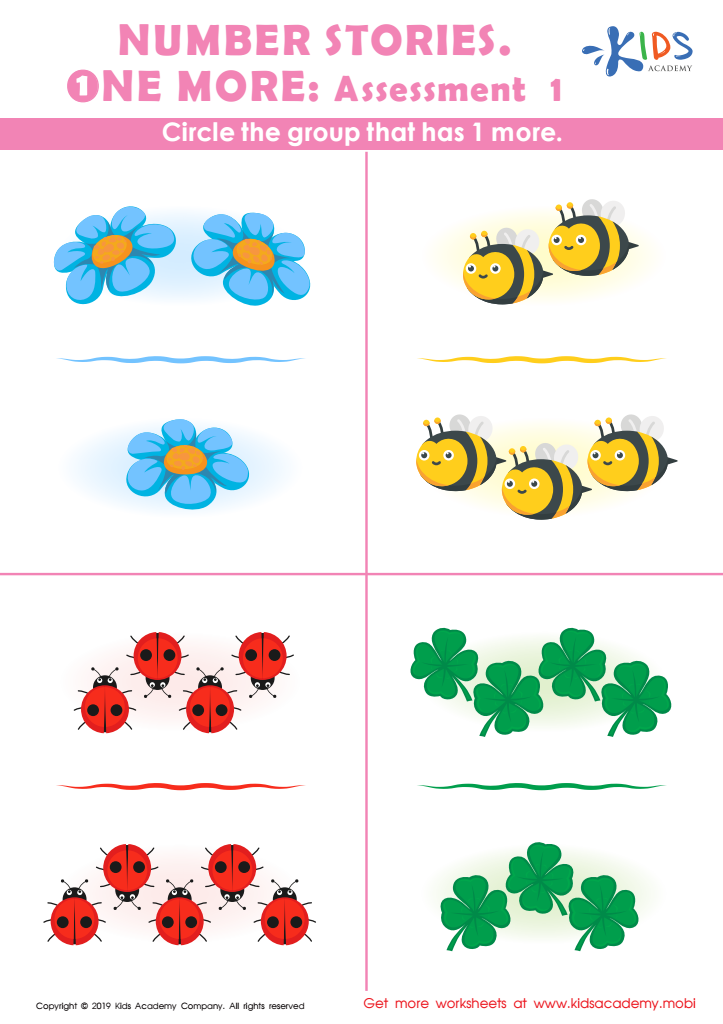

Number Stories One More – Assessment 1 Worksheet
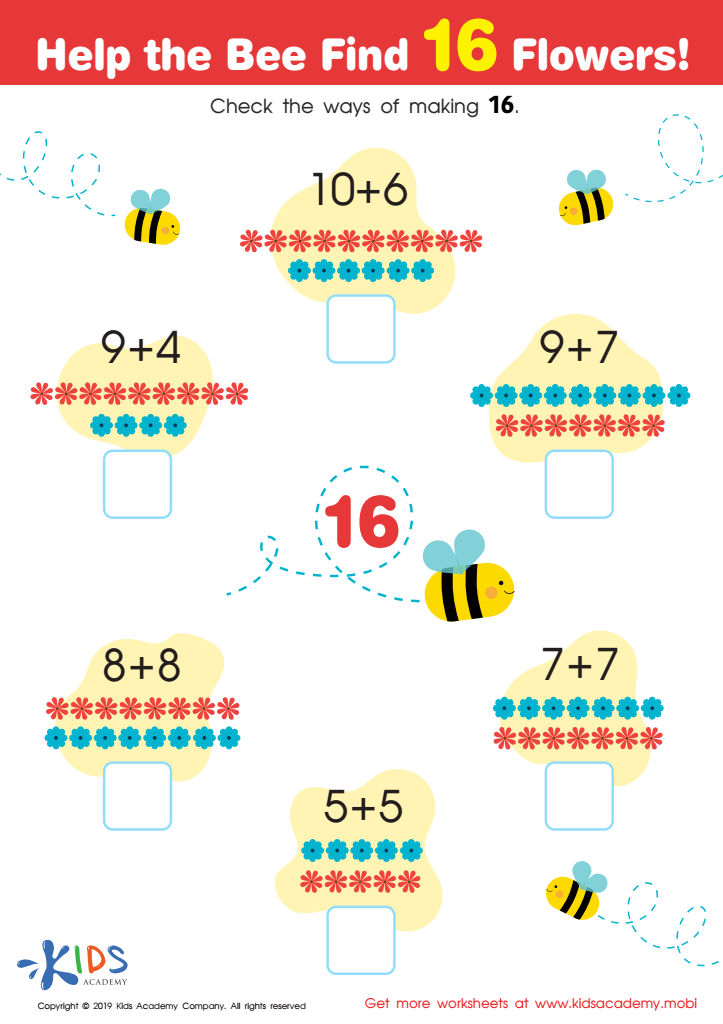

Help the Bee Find 16 Flowers Worksheet
Problem Solving Addition for ages 3-4 is pivotal for foundational math skills, fostering early cognitive development and nurturing critical thinking. At this developmental stage, children are naturally curious and eager to understand their surroundings. Introducing them to simple addition through problem-solving encourages them not only to recognize numbers but also to grasp basic concepts of quantity and relationships.
Engaging children in addition through hands-on activities, visual aids, and everyday scenarios enhances their learning experience. It transforms abstract concepts into tangible understanding, promoting active engagement and making learning fun. Problem-solving activities also encourage language development, as children learn to articulate their thought processes and reasoning.
Additionally, early exposure to mathematical concepts develops resilience and perseverance. As children encounter challenges, they learn to strategize, experiment with solutions, and build confidence in their abilities. These skills extend beyond math, preparing them for diverse problem-solving situations throughout life.
For parents and teachers, fostering an environment that prioritizes problem-solving addition supports children's overall development—cognitive, emotional, and social. By investing time in these early math skills, they are laying the groundwork for future educational success, empowering children to become confident learners in a rapidly evolving world.
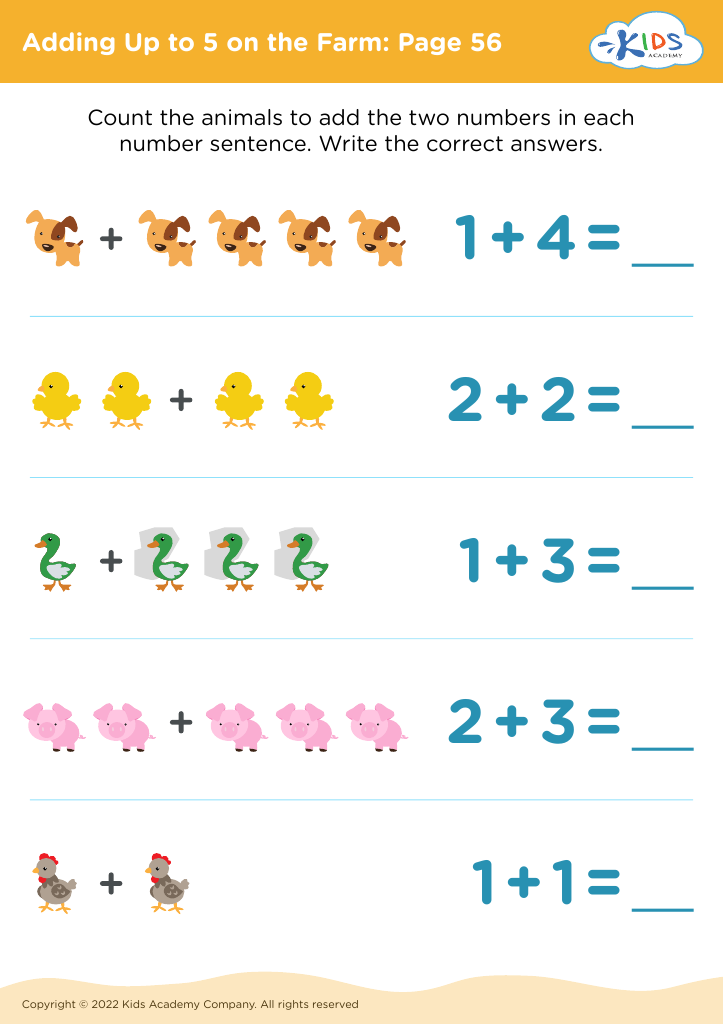

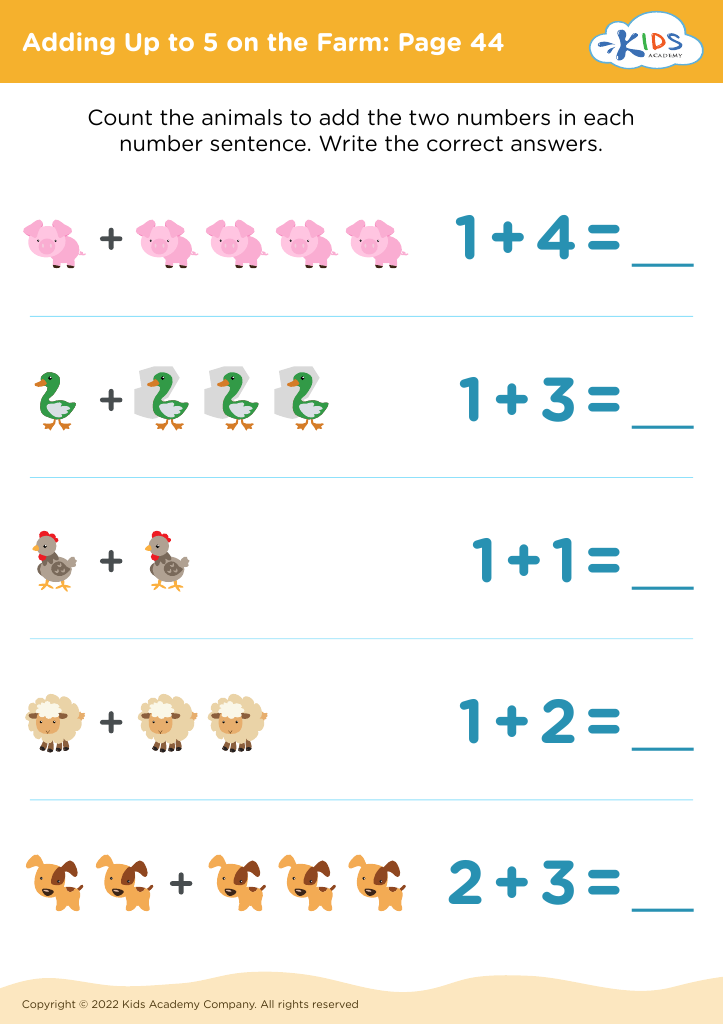
 Assign to My Students
Assign to My Students
